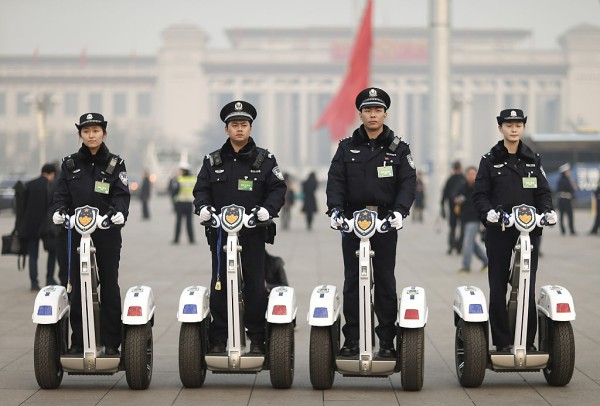A second list of Interpol Red Notices will be released by the Central Commission for Discipline Inspection (CCDI) to expand its search for fugitives, according to an article by the Global Times. The announcement was made on Wednesday, March 2.
According to an online interview with Cai Wei, deputy director of the international cooperation bureau of the Communist Party of China's CCDI, local governments were required to collect information on officials suspected to engage in corrupt behavior.
This information system will allow the CCDI to crack down on the hide-outs of allegedly corrupt officials hiding overseas, Cai said.
Aside from adding more wanted people to the Interpol Red Notice, the commission will also take drastic measures such as implementing border control and freezing assets.
China released its first list of Interpol Red Notices last April 2015, where it named 100 wanted fugitives. 60 percent of the wanted people are reportedly involved in corruption and bribery, according to a report by China News Service.
To strengthen fugitive hunting overseas, CCDI is also conducting training classes and regulating wrongful passport applications.
"This is an effective system to supervise officials, since the exit and entry information of some corrupt officials was unclear," said Huang Feng, head of the Institute for International Criminal Law at Beijing Normal University, in an interview with the Global Times.
Since it launched its "Fox Hunt" 2015, CCDI has managed to capture 857 wanted fugitives hiding overseas, according to data from the Ministry of Public Security.
As part of the strengthened campaign to catch fugitives, China will also step up international cooperation with other countries. The country plans on holding conferences with Canada, and signing memoranda with Australia. China will also open its doors wider to the China-U.S. Joint Liaison Group Anti-Corruption Working Group for more effective cooperation.
Still, some countries are hesitant to sign bilateral agreements and treaties with China due to misconceptions about the Chinese legal system.
"The obstacle to bilateral cooperation is that China has not signed extradition treaties with some major countries where most of the allegedly corrupt officials are hiding," said Ren Jianming, an anti-corruption expert from Beihang University in Beijing.


